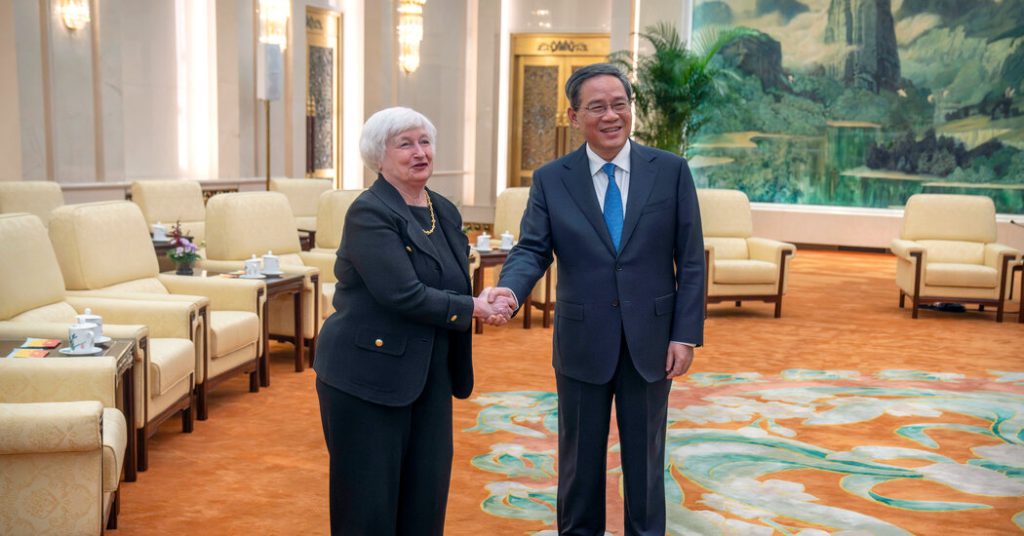The United States and China recently concluded four days of high-level economic meetings in Beijing, with no major breakthroughs but a commitment to continue discussions on trade, investment, and national security issues. Despite Treasury Secretary Janet Yellen’s urging for China to scale back its green energy technology exports, Chinese officials appeared unmoved. Yellen acknowledged that there is much more work to do and uncertainty regarding the future of the relationship between the two countries. Sensitive issues, such as Chinese exports of electric vehicles and solar panels, are likely to test the newly established lines of communication.
During the meetings, Yellen emphasized the importance of China focusing on domestic consumption, warning that flooding markets with exports could disrupt global supply chains. China has denied illegally subsidizing its new energy exports, arguing that the surge in exports is driven by global demand. Premier Li Qiang pushed back on concerns regarding Chinese exports, urging the U.S. to adhere to market norms of fair competition and open cooperation. Tariff threats were not made during the meetings, but there is little hope for a significant de-escalation of tariffs imposed by Washington.
The Biden administration has been focused on preventing China from gaining access to information of American consumers, restricting China’s access to advanced technology, and preventing electric vehicles with Chinese components from receiving U.S. subsidies. Congress is working on legislation to force ByteDance to sell TikTok, a social media platform seen as a national security concern. Despite calls for decoupling the two economies from lawmakers in both parties, Yellen emphasized that the U.S. does not seek to sever trade and investment with China, as both economies are deeply integrated and a complete separation would be detrimental.
The political landscape, with the upcoming U.S. elections, adds complexity to the economic discussions between the U.S. and China. Tensions over trade, investment, and national security are high, and trust between the two countries is limited. The Biden administration faces pressure from lawmakers to take a tough stance on China, while Beijing seeks reassurances that the U.S. does not intend to decouple from China. As both sides continue discussions on various issues, the path forward remains uncertain, with challenges ahead in navigating the complex economic relationship between the world’s two largest economies.


